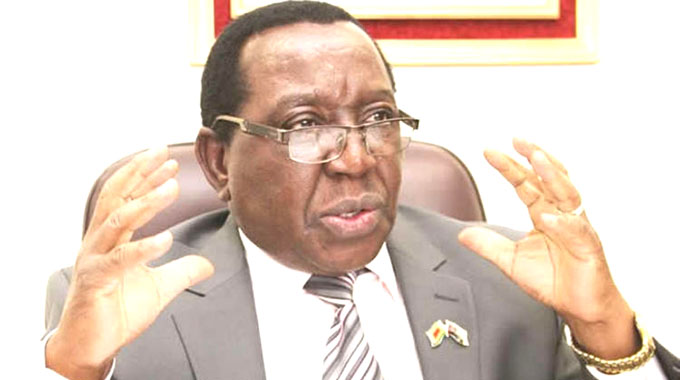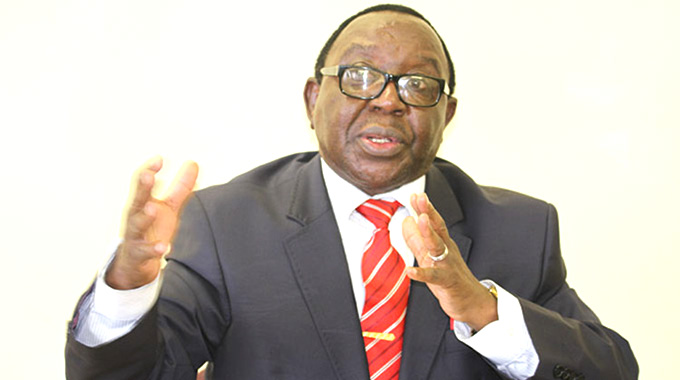Zanu-PF milestones

Nduduzo Tshuma Bulawayo Bureau
THE 18th Zanu-PF National People’s Conference kicked off yesterday in Goromonzi, Mashonaland East with the party saying its major thrust is to expedite the revival of the country’s economy.
The annual pilgrimage that brings together the country’s 10 provinces and foreign delegates, is expected to be attended by 7000 delegates who include 2 000 foreign delegates.
This is the second conference since the inception of the new dispensation in November 2017 which was followed by a special congress.
The congress ratified the nomination of President Mnangagwa as leader of the ruling Zanu-PF where he outlined his vision for both party and country especially on the need to move away from politics and channel energies on the improvement of the country’s economy and re-engaging to reposition Zimbabwe globally.
The following year, the party held its conference in Esigodini, Matabeleland South, which saw the continuation of the economic thrust dominating the meeting’s agenda. Critically, the two conferences were held at a time when the party had moved away from the days of toxic factional fights that characterised the previous dispensation especially towards conferences.
Zanu-PF secretary for information and publicity Cde Simon Khaya Moyo reiterated on Monday that this year’s conference will focus on the economy.
“I must emphasise that the conference’s focus is on the economy. Here of course we are looking at food security, social services and poverty eradication, macro and economic stability, re-engagement, inclusive growth, infrastructure development, value edition and this will be discussed in detail in thematic committees.
“It is expected the Minister of Finance and Economic Development Professor Mthuli Ncube will give an overview of the state of the economy,” he said adding that other Cabinet Ministers will also make presentations.
A lot of developments have happened between the two conferences. Chief among them was the re-introduction of the Zimbabwean dollar giving the country control of its fiscal and monetary policy. The Government made strides in fiscal consolidation that involved trimming of public expenditure, ramping up revenue mobilisation and significantly reducing the fiscal deficit.
Through the two percent tax, the Government has also bankrolled key local infrastructural projects such as the dualisation of the Beitbridge-Harare highway and the stretch from the capital along the Harare-Bulawayo Road. The Government has also disbursed more than $300 million under the devolution drive to cater for vulnerable communities.
Last month, President Mnangagwa, speaking in Bulawayo, said the Government was going to increase devolution allocation from the $703 million allocated this year. The provision of affordable transport through the revival of Zupco saw commuters paying between $1 and $2 per trip for most urban routes compared to $5 being charged by private kombis.The reforms in the investment sector saw Zimbabwe moving 15 steps up the global ease of doing business survey by the World Bank from 155 to 140 with the Government saying more needs to be done to move up the list.
International re-engagement with an economic bias saw Zimbabwe strengthening ties with a number of countries and blocs, among them the European Union, United Arab Emirates, Russia, Britain, China, Russia, Japan, Israel and others.
The country also scored a diplomatic coup after Sadc resolved to set a side October 25 as the solidarity day against illegal sanctions imposed on Zimbabwe and resolved to conduct various activities in their respective countries on the day to call for the immediate removal of the economic embargo. The regional campaign widened beyond the regional bloc to the entire continent when the African Union (AU) voiced its objections to the sanctions imposed on Zimbabwe calling for their immediate removal.
Internationally, China, Cuba and the Non-Aligned Movement made strong calls for the removal of the sanctions. The anti-corruption drive by Government recorded a number of arrests including senior officials most prominent being former Tourism Minister Priscah Mupfumira and Dr Joram Gumbo. Other prominent figures were former Vice President Phelekezela Mphoko among other officials. While the anti-corruption fight was welcomed by Zimbabweans, there have been calls for the speedy processing and conclusion of cases in order to boost the fight against graft.








Comments